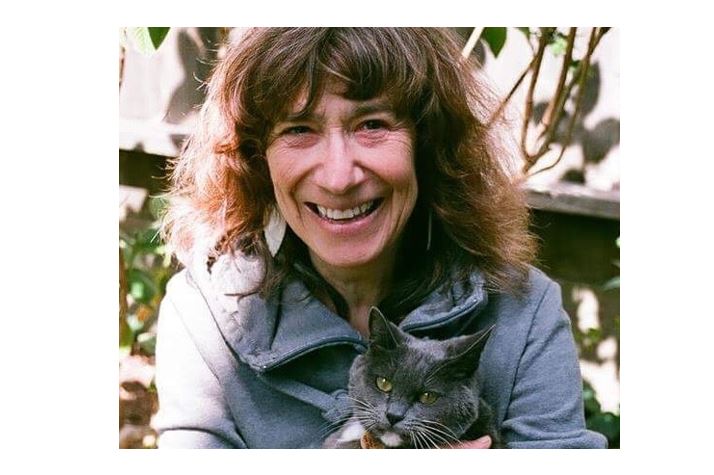PUBLISHED: 29th April 2021

On a bright April afternoon four years ago, I had my first meeting with my gynecologic oncologist, who told me that a biopsy of fluid from my swollen belly showed I had high grade serous ovarian cancer. Stage 4. I would immediately need chemo to shrink my tumor burden before surgery was feasible, she said, and would I agree to genetic testing? She explained that if I had certain genetic variants, I’d be eligible for targeted treatments that were focused on killing cancer cells without lots of collateral damage to healthy blood and tissue cells, which happens in regular chemotherapy. Why not? I thought. I knew nothing about genetic testing; all I knew was that I wanted to be someplace else. Anyplace but where I was. I read and signed the consent form, but I was too distracted and upset to absorb what I’d read.
The certified genetic counselor (CGC) I spoke with two days later explained the purpose of the test and took a detailed history of cancer in my Ashkenazi Jewish family. That’s the first I ever remember hearing about BRCA and the first time any healthcare provider suggested that the breast and ovarian cancer on my mother’s side of the family might have a hereditary basis. The story my doctors had told me for years was that, since my mother didn’t get diagnosed with breast cancer until she was past menopause, her cancer was not likely to be hereditary. The story I’d told myself was that her and her nieces’ cancers were the result of hormone replacement therapy and exposure to environmental xenoestrogens. The story my CGC told me was that test results indicated I carry a BRCA2 mutation, one that has existed in many Ashkenazi Jewish families for hundreds of years. He said that was why I had ovarian cancer. I was stunned and didn’t quite believe what I was hearing. The CGC gently recommended I check out the FORCE website.
From the website I learned that about 20 to 25% of people with ovarian cancer have a genetic mutation of one kind or another, usually in the BRCA1 or BRCA2 genes, that raises their risk of developing the disease. I learned that BRCA mutations are ten times more prevalent among Ashkenazi Jewish people than in the general population. It was painful to learn that, if I’d known my BRCA+ status years ago, I could have had a risk-reducing salpingo-oophorectomy and would likely never have developed ovarian cancer.
But I had to look forward using knowledge I’d just gained rather than be regretful about knowledge I hadn’t had in the past. I decided to follow an enhanced surveillance regimen to manage my breast cancer risk. I spoke with a FORCE peer navigator about how to talk with extended family members about their possible genetic risk in a non-threatening and engaging way. I read up on the FORCE website about those targeted therapies my oncologist had mentioned: PARP inhibitors, which are oral medications that help delay recurrence in ovarian cancer. They are especially effective for people with BRCA mutations. At the time I completed frontline chemo, these were used only for recurrent cancers. I asked for and got a PARP inhibitor for maintenance following chemo for my first recurrence after a 10-month remission. My second remission lasted twice as long as my first!
I attended my first FORCE conference in 2018, where I decided to enroll in FORCE’s Research Advocacy Training program; that seemed to be a good fit with my professional background coordinating health-related research projects. I’ve used that training to become a patient/survivor representative on a multi-center research project on very early detection of ovarian cancer, as a participant on a panel reviewing applications for federal funding for ovarian cancer research, and as a volunteer consultant on a number of draft training modules and survey-design projects. I speak to groups of medical students and other future primary care providers about recognizing symptoms of ovarian cancer and relating to patients who present with these symptoms. And I always stress the importance of advising patients from high risk populations such as Ashkenazi Jewish people to pursue genetic counseling.
From speaking with various family members, I learned that I was not the first in my family to test positive for BRCA but I was the first to systematically talk with my extended family about their possible genetic risk. I didn’t choose to have ovarian cancer, but being involved with FORCE gave me the means to make decisions about my further treatment, managing my risk for other cancers and to become actively involved as an advocate on issues that have significantly and unalterably affected my life.